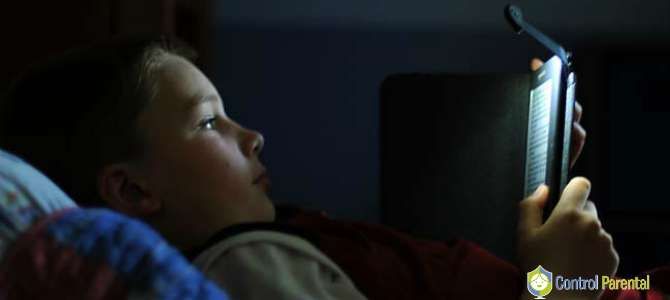New(ish) inventions being used for the first time by youngsters always presents a unique (and unforeseen) challenge for the parents raising them. Just ask previous generations of adults who have tried their best to regulate TV viewing, Internet access, etc. for the kid(s) they were raising.
As for the present day, this also seems to be the case for touchscreen devices, such as tablets and smartphones, which are pretty much in every house in modern countries. According to a new study by a team from Birkbeck University of London, researchers have discovered that infants and toddlers who use these devices regularly get less sleep at night. Though it remains unclear what exactly causes these sleeping pattern disruptions.
Previously, screen time from TV and video games was found to correlate with sleeping problems in kids. However, until now, it was unclear if those problems extended to touchscreen usage. By giving an online survey to a large sample size of parents about their kids using touchscreens and getting some damn sleep, the research team learned that for every hour tykes between the ages of six months and three-years-old use a tablet or smartphone daily, they get 15 less minutes of shut-eye.
If you’re a numbers person, they broke down like this. The team got feedback from parents of 715 toddlers and kids. About 70 percent of parents who filled out the questionnaire said they own a touchscreen device. Out of that 70 percent, 75 percent said their young kids (remember, between six months and three years) used that touchscreen every day. Parents were then asked the average duration on the kids’ “daytime and night-time sleep,” which is defined as the time it usually takes for a kid to actually fall asleep, as well as the frequency with which they wake up.
The toddlers who frequently used their touchscreens got less sleep at night and, after factoring in naps, less sleep overall. In fact, on average they took in less than 26 minutes of night-time sleep than their contemporaries who aren’t using touchscreens. They got about 10 minutes more sleep in the day (cherish nap time while you can still get it, kids) but that still amounts to 15-16 less minutes of total sleep per day. And while touchscreen usage showed no link to kids waking up in the middle of the night, it still correlated with them taking longer to fall asleep.
“These results indicate that the popularity and accessibility of touchscreen devices has led to high levels of usage by babies and toddlers, and this is associated with reduced sleep,” said the study’s lead, Tim Smith. “Future research is now needed to build on this initial study to try and understand whether touchscreen use is causing sleep problems and how types of use may mitigate these risks.”
Sounds like it’s time to figure out if the lack of sleep is caused by using these screens, or vice versa. After all, as reported by Gizmodo, similar findings about adults showed that sleep problems occurred first, which in turn led to more time staring at a screen. Next step, empirical analysis.
Also, consider just taking it away from them.
Written by: Kirsten Macnab
Fuente: www.mh.co.za
